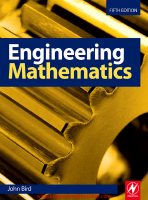
Course Description: Construction Management 2 builds upon the foundational knowledge from Construction Management 1. It focuses on practical management of construction projects, covering planning, scheduling, cost control, procurement, safety, quality, and contract administration. The course aims to equip students with the skills necessary to effectively oversee and deliver successful construction projects.
---
Key Topics Covered:
1. Construction Planning and Scheduling
Work Breakdown Structure (WBS)
Gantt Charts
Critical Path Method (CPM)
Program Evaluation Review Technique (PERT)
Resource allocation and leveling
2. Cost Estimation and Budgeting
Elements of cost (direct, indirect, overhead)
Quantity take-off
Cost estimation techniques
Budget preparation and control
3. Procurement and Contract Management
Tendering processes
Types of contracts (Lump sum, Cost-plus, Unit price)
Bidding and award procedures
Contract administration and dispute resolution
4. Construction Safety Management
Occupational Health and Safety (OHS)
Risk identification and mitigation
Site safety planning
Safety regulations and compliance
5. Quality Control and Assurance
Quality standards in construction
Inspection and testing procedures
Quality assurance plans
Documentation and audits
6. Project Monitoring and Control
Project tracking tools
Performance measurement (EVMS)
Reporting systems
Corrective actions and decision-making
7. Construction Equipment and Methods
Selection and management of construction equipment
Productivity and efficiency
Equipment costing and maintenance
8. Sustainability and Environmental
Considerations
Environmental impact assessment
Green building practices
Waste management

